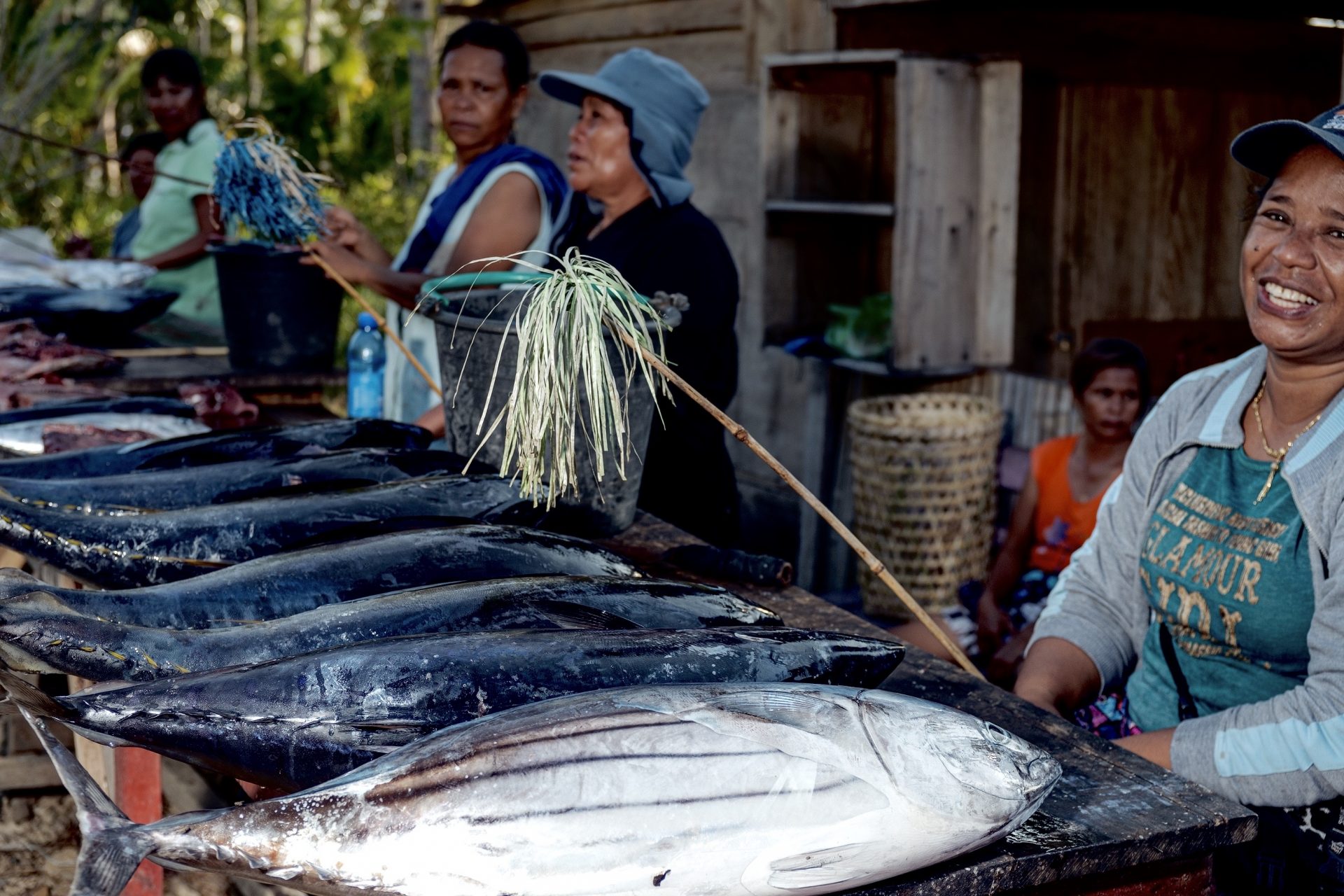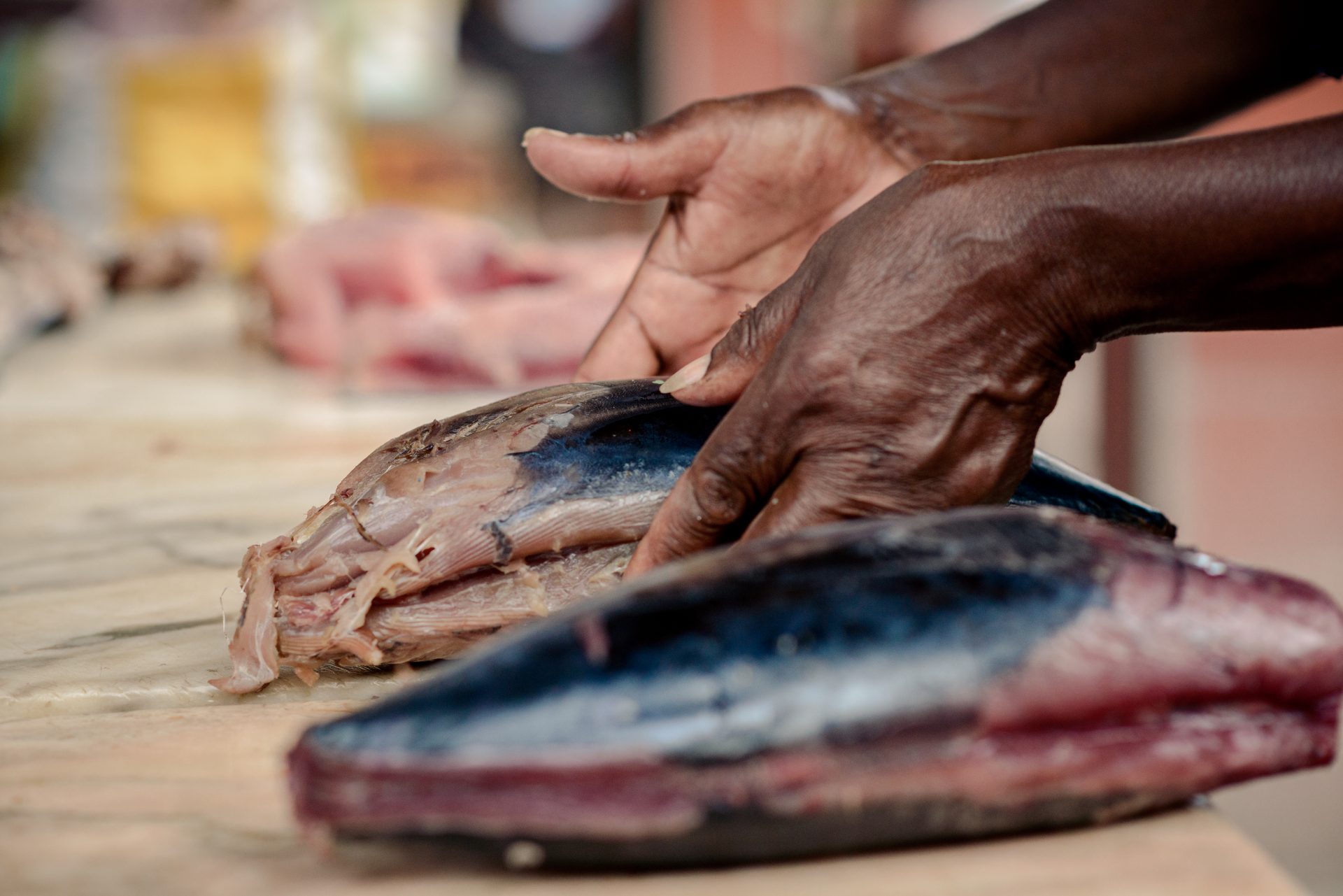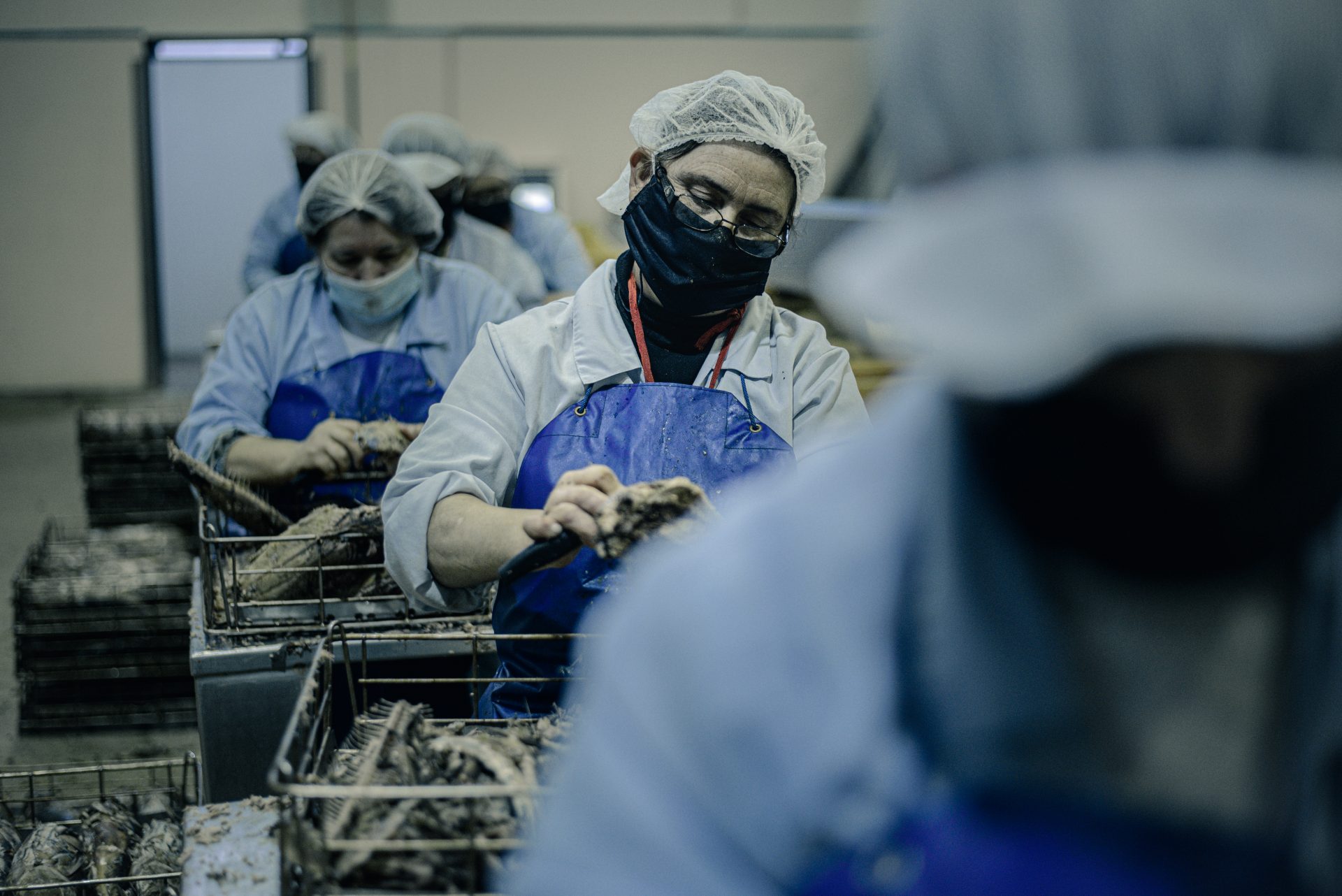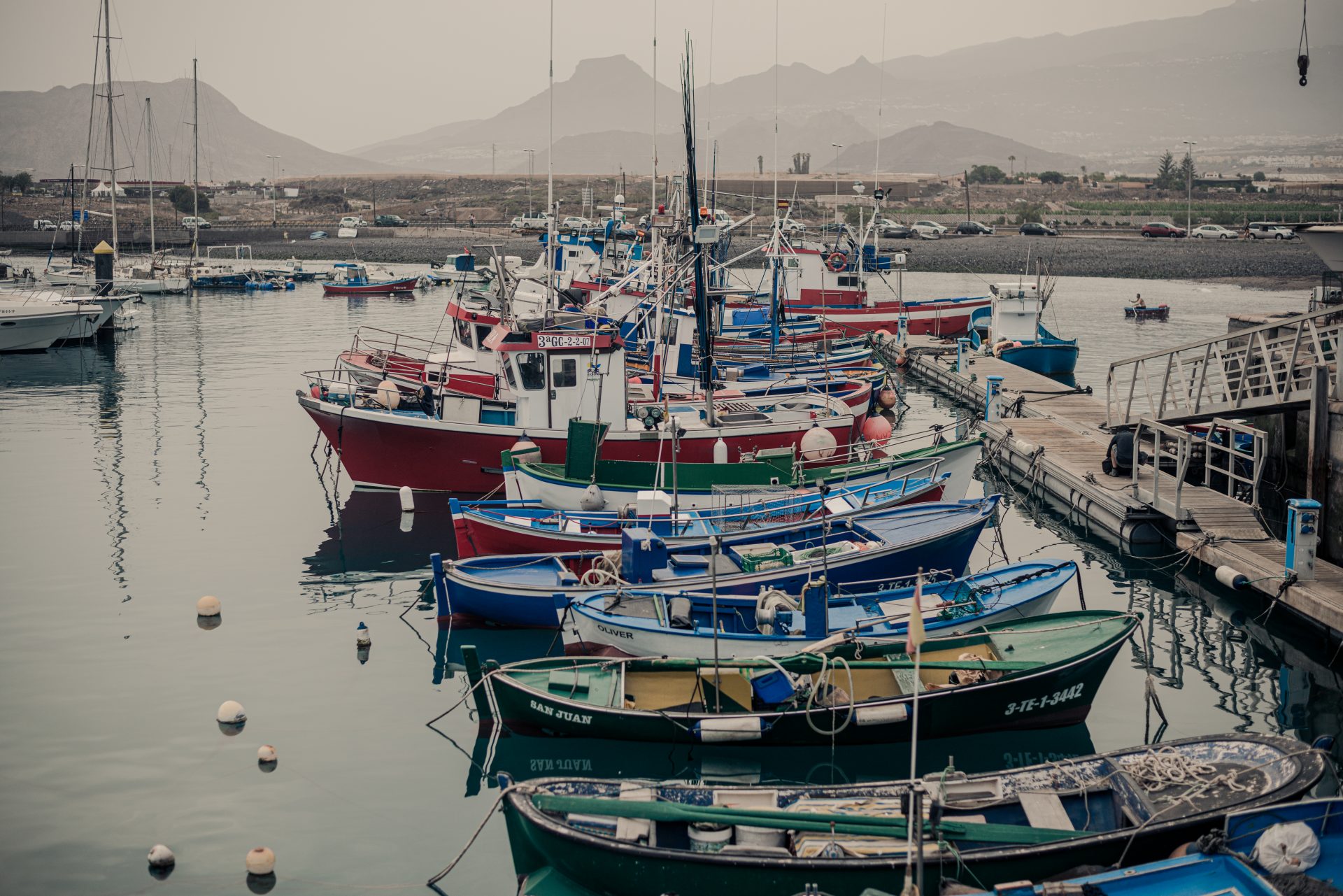It is no secret that our ocean’s health is in serious danger; we understand the gravity of climate change, we are aware of the effects of overpopulation on the planet, and, needless to say, most recently as the global pandemic unfolds, studies gradually start to show the effects on our physical and mental health. The ocean’s health concerns us all and we, therefore, share the power and responsibility to change this.
We’ll help you navigate the murky waters of the tuna fishing industry because not all fisheries are bad! It is possible to catch and consume tuna ethically and responsibly; it’s through connection, knowledge, and action. And you know what? We’ve listed them below for you. 🌊💙
Choose to Connect
 First is to consider the root cause of the issue and we believe that lies in a disconnection; mankind has developed increasingly efficient methods of food production, including fishing. We gradually became more and more disconnected from nature and fellow communities. Over time, traditional methods of fishing have been replaced by large industrial (mainly purse seine) vessels which drive overfishing and are among the biggest polluters of the ocean. Food systems that are overlooking local, often indegenous livelihoods and seasons fuel the ecological and climate crises we face.
First is to consider the root cause of the issue and we believe that lies in a disconnection; mankind has developed increasingly efficient methods of food production, including fishing. We gradually became more and more disconnected from nature and fellow communities. Over time, traditional methods of fishing have been replaced by large industrial (mainly purse seine) vessels which drive overfishing and are among the biggest polluters of the ocean. Food systems that are overlooking local, often indegenous livelihoods and seasons fuel the ecological and climate crises we face.
In order to find solutions to some of the greatest issues currently facing man-kind, we need to reconnect with nature and with local communities who have kept in tune with their environment through their ancestor’s traditions. When it comes to the beauty that is tuna, you can do that by choosing one-by-one caught tuna!
One-by-one fishing is an ancient fishing method that has been passed down for generations in coastal fishing communities around the world. Tuna are caught one-by-one and using these methods ensure that fish stocks are not depleted, and that there is little-to-no bycatch of other marine animals like sharks or turtles. In addition, it brings wealth to these communities whose local economies depend on the fishing industry.
Choosing tuna that is sustainably caught has powerful economic, social and environmental benefits. If the global pandemic and lockdown has shown us anything, it’s the importance of paying more attention to what we eat, how we eat it, and how we can support local businesses.
Choose to Know
 In order to choose your tuna responsibly, you need to know your tuna.
In order to choose your tuna responsibly, you need to know your tuna.
When taking responsibility for our food choices and when it comes to sourcing your tuna, transparency is key to knowing where it comes from. Don’t be fooled by stickers, stamps, and credential claims; instead, you want to read the label and look how the tuna has been caught: the most sustainable tuna is caught using a one-by-one fishing method, so the label would read for example “one-by-one caught” or specifically with “pole-and-line”, “handline”, and “troll line” fishing techniques. These are traditional ways of fishing, which have been used by coastal communities for hundreds of years and are by far the most sustainable. 
If you have the means and resources, choose to buy tuna that have been caught by small-scale fisheries; this supports local coastal communities directly, it saves ocean life and brings economic stability and food security directly to these people. By choosing tuna caught and processed locally, you can rest easy, knowing that you are contributing to the well being of the communities sourcing your fish, as well as the healthy future of our oceans.
Where and how to find one-by-one tuna easily? Use the Sourcing Transparency Platform that the charity created free to use for everyone; for companies that want to source local one-by-one tuna and people like you and me that want to buy honest tuna.
Transparency is of vital importance from the origin to the store and throughout the supply chain. Companies need to inform consumers to make the most sustainable choices that benefit the ocean, the coastal communities, and their plates and this website does exactly that.
The STP lists the one-by-one tuna in the stores and brands available near you, you can learn about companies’ responsibility policies and you can literally meet the local communities that work hard every day to bring you responsible tuna. Most importantly, it encourages us to rethink what environmentally sustainable and socially responsible tuna products should look like today and into the future.
 Local Stories from
Local Stories from
Now that you know all about one-by-one tuna and where to source it, are you ready to reconnect with your tuna and meet your one-by-one fishers?
“One-by-one fishing is characterised by local ownership, fishing closer to shore and for shorter lengths of time. This provides fishers with greater economic flexibility as we are given the opportunity to spend more time at home with our families, experience an improved quality of life. However, I do love to be out at sea and even go fishing in my spare time” — Ryan Nienaber, South Africa
“I own and operate my own boat, a small one tonne canoe style vessel, and I typically catch adult yellowfin tuna, sometimes up to 100kg in weight. When I catch tuna, I can make good money selling to seafood export companies in Kendari the provincial capital. As I’m Bajau, I have to share my wage, not just with my wife and children, but we also help to support our cousins, our aunts and our brothers. It’s part of our culture – we all help each other out,
so even though we don’t have much money we always have enough food to get by. I’m happy fishing, even though it’s quite hard, it’s our life!”
— Herman Mahoummed, Indonesia
“I like pole-and-line fishing because it is sustainable for the ocean and it gives employment to a number of people, like me.”— Elio Neves, Fisher, Azores
“This is artisanal fishing, the same way they have been doing it since the 20s. When you start at 5am and finish at 11pm there is still no place you would rather be at the end of the day. I love what I do, I’ve been doing it for my whole life.”
— Arthur Lorton, Captain US
“I have been a skipper for many years and am now also the owner of my own one-by-one fishing boat. The income I have made from this has helped me to build my own house and now I am able to provide for all of my children.”
— Yoosuf, Maldives
To these fishers, sustainable, ethical tuna fishing is integral to their lives and individuals and to the lives of their community. As a result, the longevity of tuna fishing, and therefore the health of the ocean ecosystem is vitally important to these communities as their children’s fate, and often their lifeline out of poverty rests on tuna fishing. As conscious consumers, if we have the means, we should be supporting responsible one-by-one fishers, for our oceans and to ensure that these same opportunities can be provided to future generations.